Thames: Nigel Farage and Bob Geldof fishing flotilla clash
- Published
Argy-bargy: Brexit armada vs Remain fleet
Nigel Farage and Bob Geldof have traded insults in a nautical battle over the EU referendum.
Mr Farage led a flotilla of fishing boats up the Thames to urge Parliament take back control of British waters.
But his Brexit armada was greeted by a rival Remain fleet carrying Mr Geldof.
The rock star yelled that the UKIP leader was "no fisherman's friend".
Mr Farage accused Mr Geldof of "mocking" impoverished fishermen.
The UKIP leader's flotilla, organised by Fishing for Leave, left the Kent port of Ramsgate early on Friday and reached Westminster during Prime Minister's Questions at 12:30 BST.
A handful of dinghies and other vessels bearing In flags sought to "intercept" the Leave flotilla as it passed under Tower Bridge, with the vessel carrying former pop star Mr Geldof playing the song "The In Crowd" over loud speakers.
There were reports of brief, light-hearted skirmishes, including the exchange of hose fire and a police launch got involved to keep them apart on the Thames outside Parliament while Prime Minister's Questions took place inside.
Addressing Mr Farage over a PA system as his boat, the Sarpedon, pulled alongside the boat carrying the UKIP leader, Mr Geldof called Mr Farage a "fraud".
"Here are the facts about fishing. One, Britain makes more money than any other country in Europe from fishing. Two, Britain has the second largest quota for fish in Europe after Denmark. Three, Britain has the third largest landings. Four, you are no fisherman's friend.
"You were on the European Parliament Fishing Committee and you attended one out of 43 meetings."
'Absolute contempt'
Mr Farage branded Mr Geldof counter protest "just disgusting... disgraceful" and said he wanted the UK to get back the rights to its own fish.
"We used to protest against the establishment, now the establishment protests against us," he said.
"What multi-millionaire Mr Geldof did was to show his absolute contempt for the men and women who have come here from right across the UK asking, demanding, to be listened to as their communities are destroyed by the commons fisheries policy.
"As a spectacle, I think it is pretty disgraceful. And then what he did was show the depth of his ignorance... We are only allowed to catch 20% by value of the fish that swim in what should be our territorial waters. He clearly does not understand that."
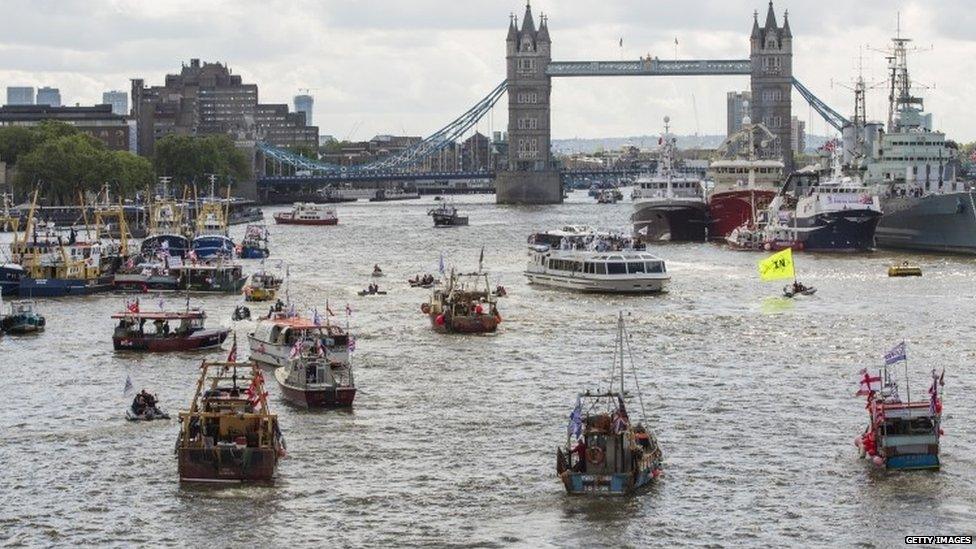
The Thames has been the scene of the most colourful and unusual exchanges of the referendum campaign so far
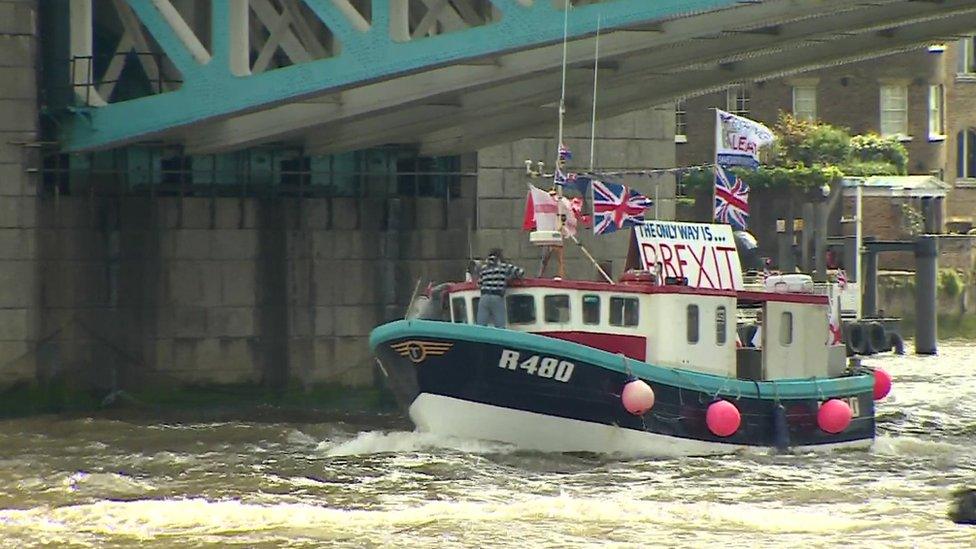
Reality TV star Joey Essex was on board one of the Leave vessels
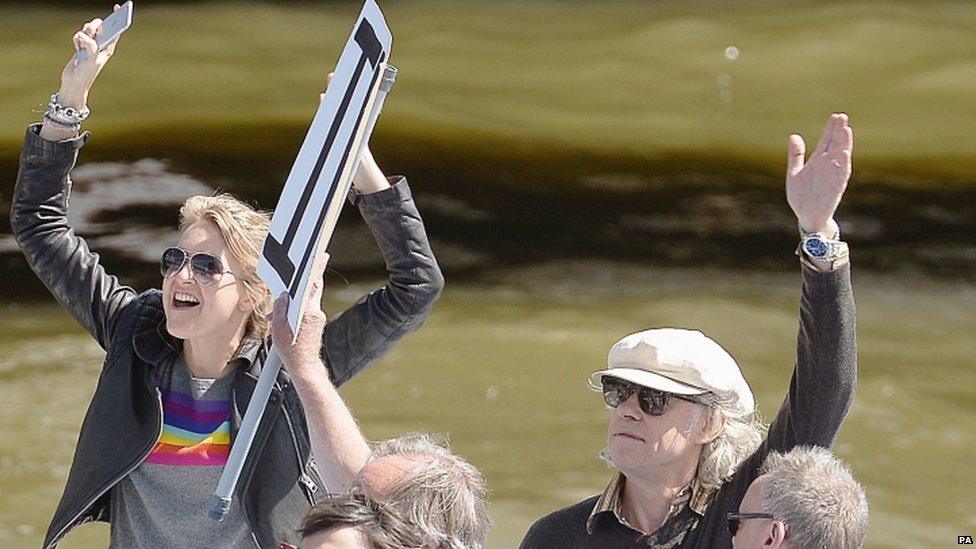
Bob Geldof attacked Mr Farage's stance on the EU and his taste in beer
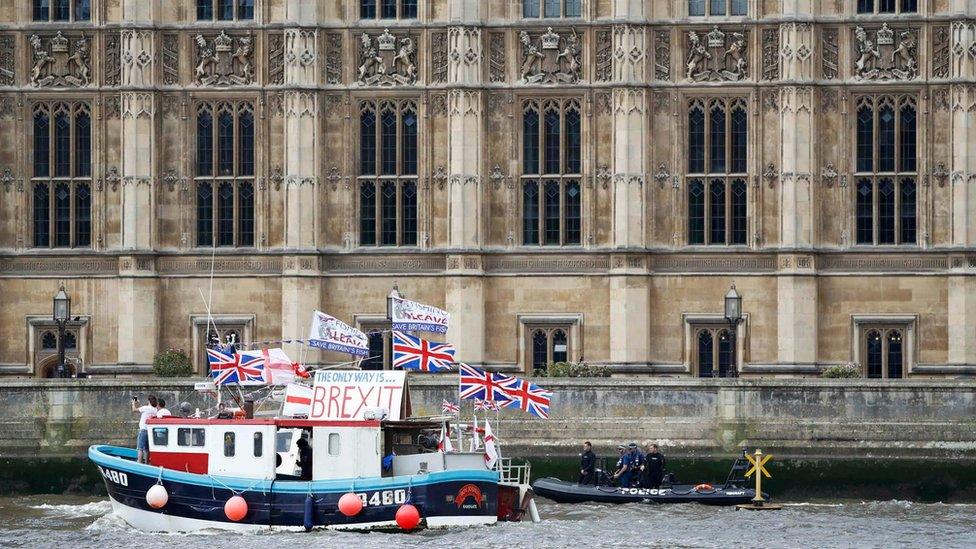
The flotilla continued past the House of Parliament
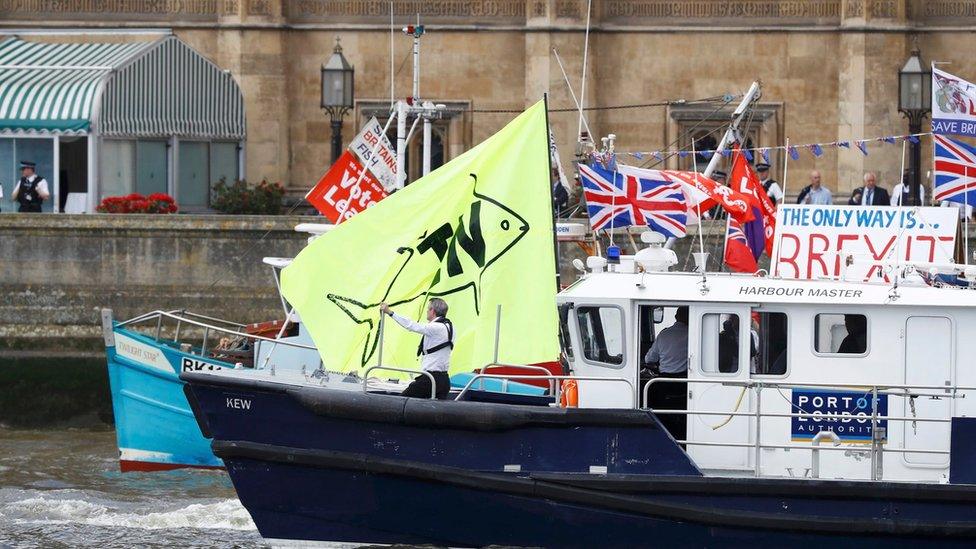
The harbour master was in attendance at Westminster
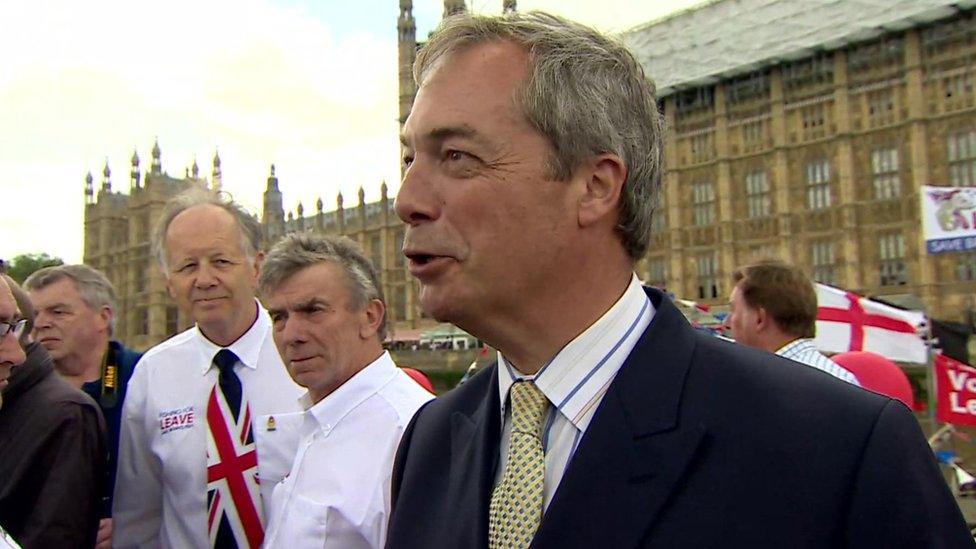
The UKIP leader said the rock star had shown the "depth of his ignorance" about EU fishing policy
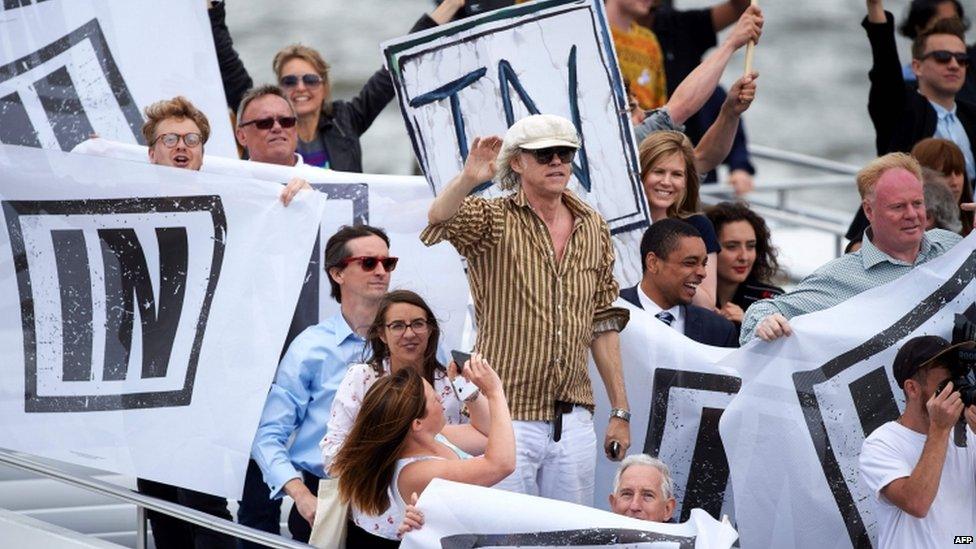
The campaigner had claimed that the UK made more money from fishing than any other EU country
A group of 30 Leave boats set off before first light, stopping at Southend and Gravesend to pick up passengers before mooring at the Pool of London at 11:00 BST, having passed underneath Tower Bridge.
Police vessels and the harbour master were in attendance as the rival vessels circled on the river outside the Houses of Parliament, where the final PMQs before the referendum was taking place.
The Port of London Authority said it had spoken to both sides about "excessive noise" and the risk of disturbance to other river users but that the episode had passed off without any safety issues.
Mr Farage rejected claims it was a publicity stunt, saying it was a "full-throttled protest" against what he claimed was the "destruction" of the UK's fishing industry by EU membership.
"There are now many harbours without a single commercial vessel...Compare and contrast all of this with Norway who control all fishing stocks up to two hundred miles within the North Sea and has a booming commercial and angling tourism industry."
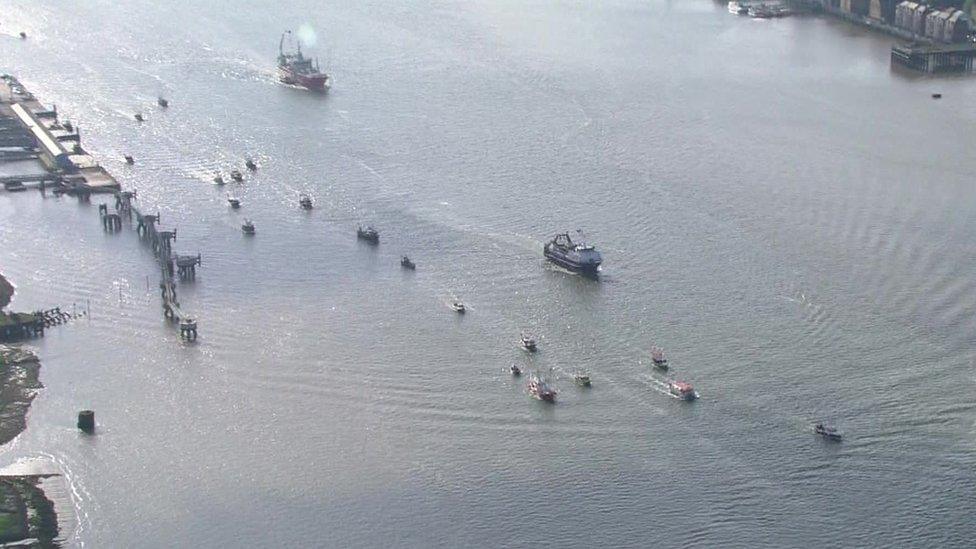
The 30 boats departed from Southend at three in the morning
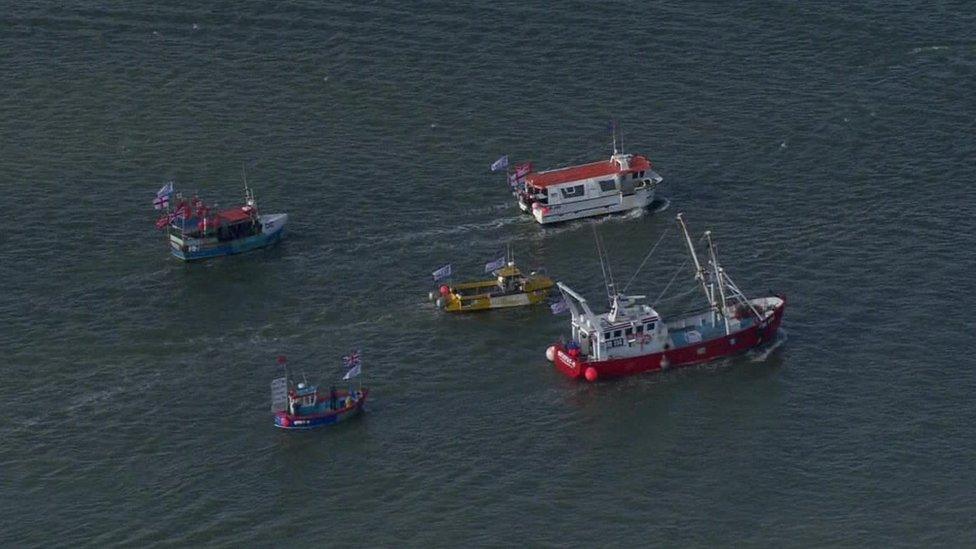
Leave fishermen say their industry has been "decimated" by the EU
But Greenpeace said the problem lay not with the EU but the concentration of UK fishing quotas in the hands of a few large operators - some of which it said were part of the flotilla - and successive governments failure to address this.
"The root of the problem lies in London, not Brussels," said the campaign group's director John Sauven. "The distribution of fishing rights within the UK's fleet is entirely the responsibility of the UK's fisheries minister."
"Brexit cheerleaders like Nigel Farage are cynically exploiting the legitimate anger of many British fishermen for political gain."
This view was echoed by Labour, which said being in the EU was good for British fishermen as it gave them access to Europe's fishing waters and their boats were able to land and sell their catch in any EU country.
"To protect fish stocks and the livelihoods that depend upon them, we need a European-wide collective approach," said shadow environment secretary Kerry McCarthy, calling for reform of rather than exit from the Common Fisheries Policy.
"We cannot risk a return to the bad old days where fish stocks were declining so fast that there were species on the verge of extinction."
Pressed on the matter at prime minister's questions, David Cameron said British fishermen could not hope to get a better deal outside the EU than they do now.
- Published5 June 2016
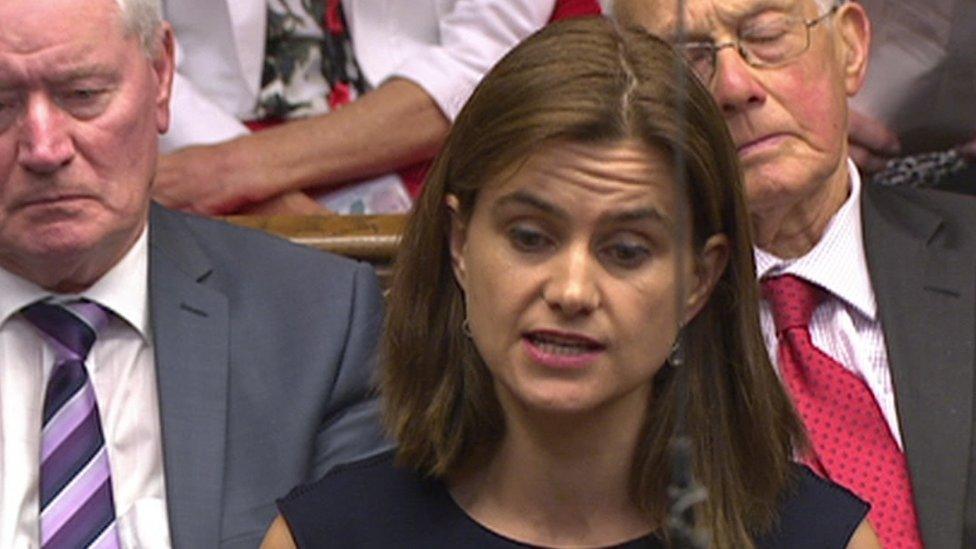
- Published31 May 2016
